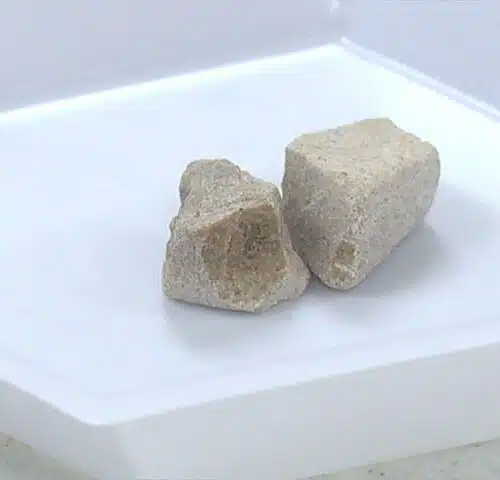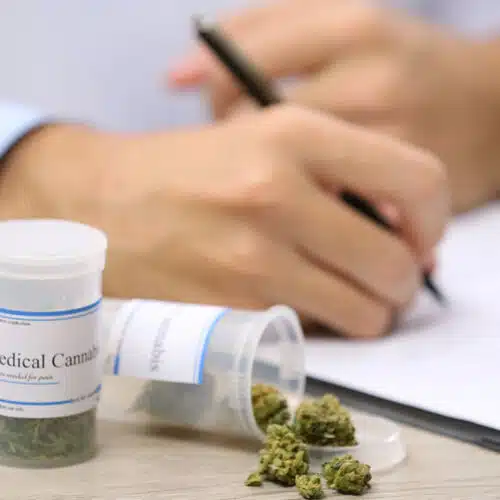DEA Clarifies; Any amount Of Cannabinoids Other Than CBD Found In Extracts Federally Illegal
A new law released in a statement from the DEA serves to clarify and reinforce the DEA’s position on all cannabis extracts, including CBD oil, They are all federally illegal. CBD oil derived from hemp is now available nationwide, those operations work under the impression that CBD products below the legal threshold for THC percentage in hemp (0.3 percent or less) are technically legal. They are wrong.
From the DEA:
The DEA gave clarification of whether the new drug code will be applicable to cannabidiol (CBD) if it is not combined with cannabinol.
DEA response: “For practical purposes, all extracts that contain CBD will also contain at least small amounts of other cannabinoids.1 However, if it were possible to produce from the cannabis plant an extract that contained only CBD and no other cannabinoids, such an extract would fall within the new drug code 7350. In view of this comment, the regulatory text accompanying new drug code 7350 has been modified slightly to make clear that it includes cannabis extracts that contain only one cannabinoid.”
Full Release Below
From The United States Government Publishing Office
DEPARTMENT OF JUSTICE
Drug Enforcement Administration
21 CFR Part 1308 [Docket No. DEA–342] RIN 1117–AB33
Establishment of a New Drug Code for Marihuana Extract
AGENCY: Drug Enforcement Administration, Department of Justice.
ACTION: Final rule.
SUMMARY: The Drug Enforcement Administration is creating a new Administration Controlled Substances Code Number for ‘‘Marihuana Extract.’’ This code number will allow DEA and DEA-registered entities to track quantities of this material separately from quantities of marihuana. This, in turn, will aid in complying with relevant treaty provisions.
Under international drug control treaties administered by the United Nations, some differences exist between the regulatory controls pertaining to marihuana extract versus those for marihuana and tetrahydrocannabinols. The DEA has previously established separate code numbers for marihuana and for tetrahydrocannabinols, but not for marihuana extract. To better track these materials and comply with treaty provisions, DEA is creating a separate code number for marihuana extract with the following definition: ‘‘Meaning an extract containing one or more cannabinoids that has been derived from any plant of the genus Cannabis, other than the separated resin (whether crude or purified) obtained from the plant.’’ Extracts of marihuana will continue to be treated as Schedule I controlled substances.
DATES: Effective: January 13, 2017.
FOR FURTHER INFORMATION CONTACT: Michael J. Lewis, Office of Diversion Control, Drug Enforcement Administration; Mailing Address: 8701 Morrissette Drive, Springfield, Virginia 22152; Telephone (202) 598–6812. SUPPLEMENTARY INFORMATION:
Background
As provided in 21 CFR 1308.03, each controlled substance or basic class thereof is assigned a four digit Administration Controlled Substance Code Number (‘‘Code number’’ or ‘‘drug code’’) that is used to track quantities of the controlled substance imported and exported to and from the United States. Additionally, the DEA uses these code numbers in establishing aggregate production quotas for basic classes of controlled substances listed in Schedules I and II as required by 21 U.S.C. 826.
Consistent with the Controlled Substances Act (CSA), the schedules contained in DEA regulations include marihuana (drug code 7360) in Schedule I. 21 CFR 1308.11(d)(23). This listing includes (unless specifically excepted or unless listed in another schedule) any material, compound, mixture, or preparation, which contains any quantity of the substance, or which contains any of its salts, isomers, and salts of isomers that are possible within the specific chemical designation. Because the definition of marihuana in 21 U.S.C. 802(16) includes both derivatives and preparations of marihuana, the DEA until now has used drug code 7360 for extracts of marihuana. This final rule finalizes a July 5, 2011, Notice of Proposed Rulemaking (76 FR 39039) in which the DEA proposed that a new drug code 7350 be used for extracts of marihuana.
Why a New Code Number Is Needed
The United Nations Conventions on international drug control treats extracts from the cannabis plant somewhat differently than marihuana or tetrahydrocannabinols. The creation of a new drug code in the DEA regulations for marihuana extracts will allow for more appropriate accounting of such materials consistent with treaty provisions.
The Single Convention on Narcotic Drugs, 1961 (‘‘Single Convention’’) and the 1971 Convention on Psychotropic Substances (‘‘Psychotropic Convention’’) provide for the international control of marihuana constituents. Many of the CSA’s provisions were drafted to comply with these Conventions. The CSA includes schemes of drug scheduling and procedures for adding, removing, and transferring drugs among the schedules that are similar, in some ways, to those in the Single Convention. With respect to those drugs that are subject to control under the Single Convention, the CSA mandates that DEA control such drugs in a manner that will ensure the United States meets its obligations under the Single Convention. 21 U.S.C. 811(d)(1).
Somewhat similar to the CSA, the Single Convention lists substances in four schedules. However, under the Single Convention, the drugs that are subject to the most stringent controls are in Schedule IV. Another difference between the CSA and the Single Convention is that, under the latter, a drug can be listed in more than one schedule. Cannabis and cannabis resin are listed in both Schedule IV and Schedule I of the Single Convention. Schedule I controls under the Single Convention include: Requirements for import and export authorization, licensing of manufacturers/distributors, recordkeeping requirements, a requirement for prescriptions for medical use, annual estimate of needs, quotas, annual statistical reporting, and a requirement that use be limited to medical and scientific purposes. Schedule II of the Single Convention is similar in controls to Schedule I with a few exceptions, and Schedule III is less restrictive. All substances listed in Schedule IV are also listed in Schedule
I under the Single Convention in order to encompass the requirements mentioned above. In addition, as indicated, the Single Convention imposes certain heightened measures of control with respect to Schedule IV drugs. The placing of a drug into both Schedule I and Schedule IV, therefore imposes the most stringent controls under the Single Convention. Although cannabis and cannabis resin are listed in Schedules I and IV of the Single Convention, cannabis extracts are listed only in Schedule I.
Comments
In response to the July 5, 2011, Notice of Proposed Rulemaking (76 FR 39039), the DEA received six submissions from five commenters. Three of the comments raised issues relating to the medical use or legality of marihuana/ cannabis; these comments were not germane to the issues addressed by this rulemaking. A fourth comment was merely a clarification of a comment previously submitted.
One comment requested clarification of whether the new drug code will be applicable to cannabidiol (CBD), if it is not combined with cannabinols.
DEA response: For practical purposes, all extracts that contain CBD will also contain at least small amounts of other cannabinoids.1 However, if it were possible to produce from the cannabis plant an extract that contained only CBD and no other cannabinoids, such an extract would fall within the new drug code 7350. In view of this comment, the regulatory text accompanying new drug code 7350 has been modified slightly to make clear that it includes cannabis extracts that contain only one cannabinoid.
Another comment from a pharmaceutical firm currently involved in cannabinoid research and product development praised DEA’s efforts to establish a new drug code for marihuana extracts as a means to more accurately reflect the activities of scientific research and provide more consistent adherence to the requirements of the Single Convention. However, the comment expressed concerns that the proposed definition for the new drug code (i.e. ‘‘meaning extracts that have been derived from any plant of the genus Cannabis and which contain cannabinols and cannabidiols’’) is too narrow. The comment suggested that the broader term ‘‘cannabinoids’’ be substituted for ‘‘cannabinols and cannabidiols.’’ The comment pointed out that other constituents of the marihuana plant may have therapeutic potential. The comment further clarified that the broader term ‘‘cannabinoid’’ includes both cannabinol-type1 Although it might be theoretically possible to produce a CBD extract that contains absolutely no amounts of other cannabinoids, the DEA is not aware of any industrially-utilized methods that have achieved this result. DEA response: DEA agrees with the commenter that the term ‘‘cannabinoid’’ would provide for a broader definition of marihuana extract; however, use of the term ‘‘cannabinoid’’ necessitates that the DEA clarify that the new marihuana extract category (drug code 7350) is not intended to include ‘‘cannabis resin’’ as defined in the U.N. Single Convention.
As discussed in the NPRM, a new drug code is necessary in order to better account for these materials in accordance with treaty obligations. The Single Convention placed ‘‘cannabis’’ and ‘‘cannabis resin’’ under both Schedule I and IV of the Convention, the most stringent level of control under the Convention. While ‘‘cannabis resin’’ is extracted from ‘‘cannabis,’’ the Single Convention specifically controls ‘‘extracts’’ separately. Extracts of cannabis are controlled only under Schedule I of the Convention, which is a lower level of control than ‘‘cannabis resin.’’
Accordingly, it is the DEA’s intent to define the term ‘‘marihuana extract’’ so as to exclude material referenced as ‘‘cannabis resin’’ under the Single Convention on Narcotics. ‘‘Cannabis resin’’ (regulated under the CSA as a resin of marihuana) contains a variety of ‘‘cannabinoids’’ and will continue to be regulated as marihuana under drug code 7360. The new drug code for marihuana extracts under 21 CFR 1308.11(d)(58) will exclude the resin. Cannabis resin and marihuana resin remain captured under the drug code for marihuana (drug code 7360), thus differentiating this material from marihuana extracts (new drug code 7350). This will maintain compliance with the Single Convention.


